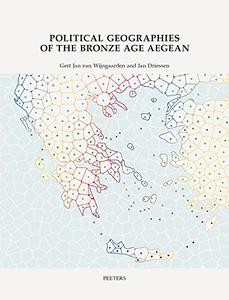
Political Geographies of the Bronze Age Aegean by Gert Jan Van Wijngaarden, Jan Driessen
2022 | ISBN: 9042947322 | English | 260 pages | PDF | 10 MB
Even though the demise of the Minoan and Mycenaean palaces happened more than three millennia ago, opinions on the political geography of the Aegean during the Bronze Age (2500-1100 BC) have seen remarkable changes over the last century and discussions continue. Since the Early Bronze Age, both Crete and the Helladic Mainland witnessed the development of complex societies. The ways in which these were structured and how power was executed, however, remain debated. In this volume, which represents the proceedings of a three-day workshop that took place in Athens from May 29 to 31, 2018, leading scholars in the field of Aegean Archaeology continue these debates on the basis of theoretically informed views that incorporate the latest archaeological developments, derived from both surveys and excavations. The volume is structured around three themes: 1. Territories. Can political or other meaningful spatial organisations be recognised in our data? And how did territories relate to one another? What about boundaries? How can we integrate our data into a discussion of intra-and inter-territorial relationships. 2. Authority display. Can we recognise different levels or scales in visual representation of authority? Were Aegean societies faceless? 3. Forms of power. How was power exercised and how can we recognise this? What types of control (military, economic, religious, social, technological....) can be distinguished and to what extent was power individualised, concentrated, hereditary, institutionalised, corporate.....?
Links are Interchangeable - No Password - Single Extraction



